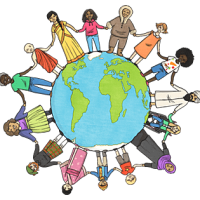The United Kingdom’s Department for International Development (DFID) has long been a cornerstone of the UK’s commitment to global development and poverty alleviation. Established in 1997, DFID was created to address the pressing issues of poverty and inequality faced by developing nations. Its mission is to promote sustainable development and improve the quality of life for people in some of the world’s most vulnerable communities.
DFID operates under the principle that every individual deserves the opportunity to lead a life free from poverty, and it works tirelessly to provide the necessary resources, expertise, and support to make this vision a reality. The department has played a pivotal role in shaping international development policies and has been instrumental in mobilizing financial resources for various initiatives aimed at improving health, education, and economic opportunities in low-income countries. DFID’s approach is characterized by a commitment to evidence-based strategies and partnerships with a wide range of stakeholders, including governments, non-governmental organizations (NGOs), and private sector entities.
By leveraging these collaborations, DFID aims to create sustainable solutions that address the root causes of poverty rather than merely treating its symptoms. The department has also been at the forefront of advocating for gender equality, climate resilience, and social inclusion, recognizing that these factors are critical to achieving long-term development goals. As DFID continues to evolve in response to global challenges, its focus remains steadfast on empowering communities and fostering resilience, ensuring that the benefits of development reach those who need it most.
Key Takeaways
- UK DFID is a government department responsible for administering the UK’s aid to developing countries
- Global Grants for Poverty Reduction and Development aim to support projects that address the root causes of poverty and promote sustainable development
- Eligibility for the grants is open to a wide range of organizations, including NGOs, government agencies, and private sector companies
- Success stories highlight the positive impact of the grants on communities and individuals in developing countries
- Challenges include ensuring accountability and transparency in grant implementation, with future plans focusing on improving effectiveness and sustainability of projects
Overview of Global Grants for Poverty Reduction and Development
Global grants for poverty reduction and development represent a vital mechanism through which financial resources are allocated to support initiatives aimed at improving living conditions in impoverished regions. These grants are typically provided by various international organizations, governments, and philanthropic entities, with the goal of addressing specific challenges such as food insecurity, lack of access to education, and inadequate healthcare services. The funding can be directed towards a wide array of projects, including infrastructure development, capacity building, and social programs that empower marginalized populations.
By channeling resources into targeted interventions, global grants play a crucial role in fostering economic growth and enhancing the overall well-being of communities. The significance of these grants extends beyond mere financial assistance; they also serve as catalysts for change by promoting innovative solutions and best practices in development. Many grant programs emphasize collaboration among stakeholders, encouraging local communities to take an active role in identifying their needs and implementing solutions.
This participatory approach not only enhances the effectiveness of projects but also fosters a sense of ownership among beneficiaries. Furthermore, global grants often come with technical assistance and capacity-building components, equipping local organizations with the skills and knowledge necessary to sustain their initiatives long after funding has ended. As such, these grants are instrumental in creating a more equitable global landscape where individuals have the opportunity to thrive.
Eligibility and Application Process

Navigating the eligibility criteria and application process for global grants can be a complex endeavor for many organizations seeking funding for poverty reduction initiatives. Generally, eligibility requirements vary depending on the specific grant program and its objectives. Most grants prioritize applications from non-profit organizations, community-based groups, and sometimes governmental entities that demonstrate a clear commitment to addressing poverty-related issues.
Additionally, applicants are often required to provide evidence of their organizational capacity, including past project experience, financial management capabilities, and a well-defined project proposal that outlines the intended impact of the funding. This rigorous vetting process ensures that resources are allocated to initiatives with a high likelihood of success. The application process itself typically involves several stages, beginning with a preliminary proposal or concept note that outlines the project’s goals, target population, and expected outcomes.
If the initial submission is well-received, applicants may be invited to submit a full proposal that includes detailed budgets, timelines, and monitoring and evaluation plans. This stage often requires collaboration among various stakeholders to ensure that all aspects of the project are thoroughly addressed. Once submitted, proposals undergo a review process where they are evaluated based on criteria such as feasibility, sustainability, and alignment with the grantor’s mission.
Successful applicants may then enter into negotiations regarding funding terms before receiving the grant award. Understanding this process is crucial for organizations aiming to secure funding for their development initiatives.
Impact and Success Stories
The impact of global grants for poverty reduction can be seen through numerous success stories that highlight transformative changes in communities around the world. One notable example is the work done in sub-Saharan Africa, where grants have been instrumental in improving access to clean water and sanitation facilities. In many rural areas where waterborne diseases were rampant due to inadequate infrastructure, targeted funding has enabled local organizations to construct wells and install sanitation systems.
As a result, communities have experienced significant reductions in illness rates, leading to improved health outcomes and increased productivity among residents. These projects not only address immediate health concerns but also contribute to long-term economic stability by allowing individuals to engage more fully in their work and education. Another compelling success story comes from educational initiatives funded by global grants in South Asia.
In regions where girls faced significant barriers to education due to cultural norms or economic constraints, targeted programs have successfully increased enrollment rates among female students. By providing scholarships, building schools closer to communities, and implementing awareness campaigns about the importance of girls’ education, these initiatives have empowered young women to pursue their academic goals. The ripple effect of such programs is profound; educated women are more likely to contribute positively to their families and communities, breaking cycles of poverty and fostering future generations of learners.
These examples underscore the critical role that global grants play in driving meaningful change and improving lives across diverse contexts.
Challenges and Future Plans
Despite the significant progress made through global grants for poverty reduction, numerous challenges persist that hinder the effectiveness of these initiatives. One major obstacle is the issue of sustainability; while grants can provide essential funding for projects, ensuring that these initiatives continue to thrive after funding ends is often difficult. Many organizations struggle with transitioning from grant-dependent models to self-sustaining operations.
This challenge is compounded by external factors such as political instability or economic downturns in recipient countries, which can disrupt ongoing projects and limit their long-term impact. Additionally, there is often competition among organizations for limited funding resources, leading to potential duplication of efforts or fragmentation of services within communities. Looking ahead, it is crucial for grant-making entities to adopt more flexible funding models that prioritize sustainability and long-term impact.
This could involve providing multi-year funding commitments or offering capacity-building support alongside financial resources. Furthermore, fostering collaboration among various stakeholders—including local governments, NGOs, and community members—can enhance project sustainability by ensuring that initiatives are rooted in local needs and contexts. As global challenges such as climate change and pandemics continue to evolve, adapting grant strategies will be essential for maximizing impact and addressing emerging issues effectively.
Conclusion and Call to Action

In conclusion, the role of global grants in poverty reduction and development cannot be overstated; they serve as vital lifelines for communities striving for better living conditions and opportunities. The success stories emerging from various initiatives illustrate the transformative power of targeted funding when combined with local engagement and innovative solutions. However, as we reflect on these achievements, it is equally important to acknowledge the challenges that remain and work collectively towards overcoming them.
Stakeholders at all levels—governments, NGOs, private sector actors, and individuals—must come together to advocate for more sustainable funding models that prioritize long-term impact over short-term gains. As we move forward into an increasingly interconnected world facing complex challenges, it is imperative that we remain committed to supporting initiatives aimed at alleviating poverty and promoting equitable development. Individuals can play a crucial role by raising awareness about these issues within their communities and advocating for policies that support international development efforts.
By fostering a culture of collaboration and shared responsibility, we can ensure that future generations inherit a world where opportunities are accessible to all—regardless of their background or circumstances. The call to action is clear: let us unite our efforts in pursuit of a more just and equitable global society where every individual has the chance to thrive.
For organizations seeking opportunities similar to the UK DFID’s initiatives for poverty reduction and development, the OnSide Fund 2024 offers a promising avenue. This fund provides unrestricted funding to grassroots groups, organizations, and changemakers who are dedicated to creating significant social impact within their communities. Such financial support is crucial for sustaining and scaling efforts that aim to tackle poverty and enhance development, aligning well with the objectives of UK DFID’s global grants. For more details on how to apply and the kind of projects supported, interested parties can visit the fund’s announcement page here.
FAQs
What is the UK DFID?
The UK Department for International Development (DFID) is the government department responsible for administering the UK’s official development assistance to developing countries.
What are Global Grants for Poverty Reduction and Development?
Global Grants for Poverty Reduction and Development are funding opportunities provided by the UK DFID to support projects and initiatives aimed at reducing poverty and promoting sustainable development in developing countries.
Who is eligible to apply for Global Grants?
Eligibility for Global Grants varies depending on the specific funding opportunity, but generally, non-governmental organizations, civil society organizations, research institutions, and other entities working in the field of international development are eligible to apply.
What types of projects are supported by Global Grants?
Global Grants support a wide range of projects and initiatives aimed at addressing key development challenges, including but not limited to health, education, governance, economic development, and environmental sustainability.
How can organizations apply for Global Grants?
Organizations can apply for Global Grants by responding to specific funding opportunities announced by the UK DFID. This typically involves submitting a detailed project proposal outlining the objectives, activities, budget, and expected outcomes of the proposed project.
What is the impact of Global Grants on poverty reduction and development?
Global Grants have contributed to significant positive impacts on poverty reduction and development in developing countries, including improved access to essential services, increased economic opportunities, and strengthened governance and institutions.








































